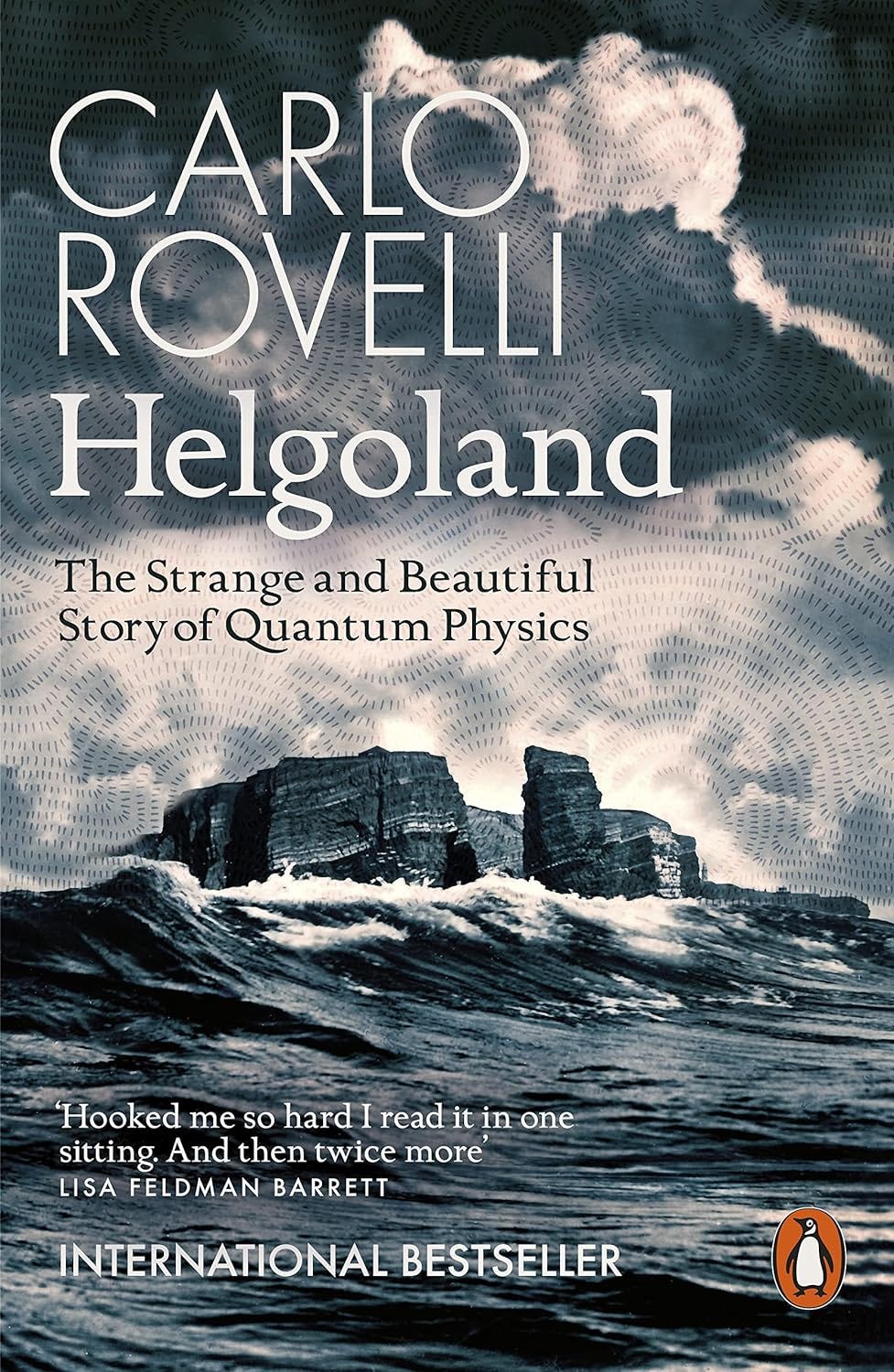My Year In Reading
Books I Read Or At Least Picked Up In 2023
Apparently this is too ‘long’ for Gmail (probably because it has lots of pics of book covers), so if that’s a problem just click on the header to read online. In fact it’s always better that way, you get serifs and everything.

Catch-up service:
- Lessons In How Not To Lead
- The End of History
- Thirty-One Insights Into Art, Writing and the Creative Process
Welcome to my year in reading, which consists of books read in-between books about the Beatles. Full list here in case you’re wondering if you want to read on…
Carlo Rovelli, Helgoland and Reality Is Not What It Seems
Benjamin Labatut, When We Cease To Understand The World
David Bodanis, E=mc2: A Biography of the World's Most Famous Equation
Meghan O'Gieblyn, God, Human, Animal, Machine
Tomiwa Owolade, This Is Not America
Leonard Mlodinow, Emotional: The New Thinking About Feelings
Joy Williams, The Visiting Privilege
Carole King, A Natural Woman
Wes Streeting, One Boy, Two Bills and a Fry-Up
Evelyn Waugh, Brideshead Revisited
Donald Barthelme, Forty Stories
Elizabeth Taylor, Mrs Palfrey at the Claremont
Louis Menand, The Free World: Art and Thought In the Cold War
Lesley Chow, You’re History: The Twelve Strangest Women In Music
Ian Penman, It Gets Me Home, This Curving Track
John Updike, The Early Stories, and More Matter: Essays and Criticism
David Vernon, Beauty and Sadness: Mahler’s 11 Symphonies
Michael Lewis, Going Infinite
Terry Eagleton, Critical Revolutionaries
For no particular reason, and without deliberately choosing to, I read several books about or related to physics. For once, I was following my own advice, which is to cluster your reading by topic or author so that your books start speaking to one another in your mind, adding new information and different angles on the same topic. That enriches your understanding of what you’re reading and helps to bed down new knowledge into your memory. In theory. I really should do it more often.
Carlo Rovelli, Helgoland and Reality Is Not What It Seems
My physics journey started with Helgoland, sparking a chain reaction. Rovelli is the current king of science writing. It’s remarkable and actually just unfair that he can be an eminent physicist and write so beautifully - as if Steph Curry was also a world-class golfer. Even if I don’t understand everything in a Rovelli book I grasp enough to feel like I’m learning, and I know I’m in the hands of a humane thinker. Reality Is Not What It Seems, an introduction to the quantum world, should probably be read first. Helgoland is on the same topic and introduces Rovelli’s grand theory of everything.
Benjamin Labatut, When We Cease To Understand The World
Some of the scientists discussed by Rovelli feature in Labatut’s short novel, a series of fictionalised portraits of brilliant minds, mostly scientists or mathematicians from the early twentieth century, working on impenetrable problems that touch on the darkest of themes. It’s billed as a novel but written like a non-fiction book. Most of the information it relates is from the real world, but not all of it. Actually, I kind of lost interest when I read a note at the end saying that some of it is made up. Once you know that, you’re constantly wondering what’s what, and that’s distracting. Absurd as it sounds I think this book would work better and be more formally innovative if the real and fictional parts were in different fonts. Still, there are some terrific characters and stories from (I checked) the real world that I didn’t know about.






